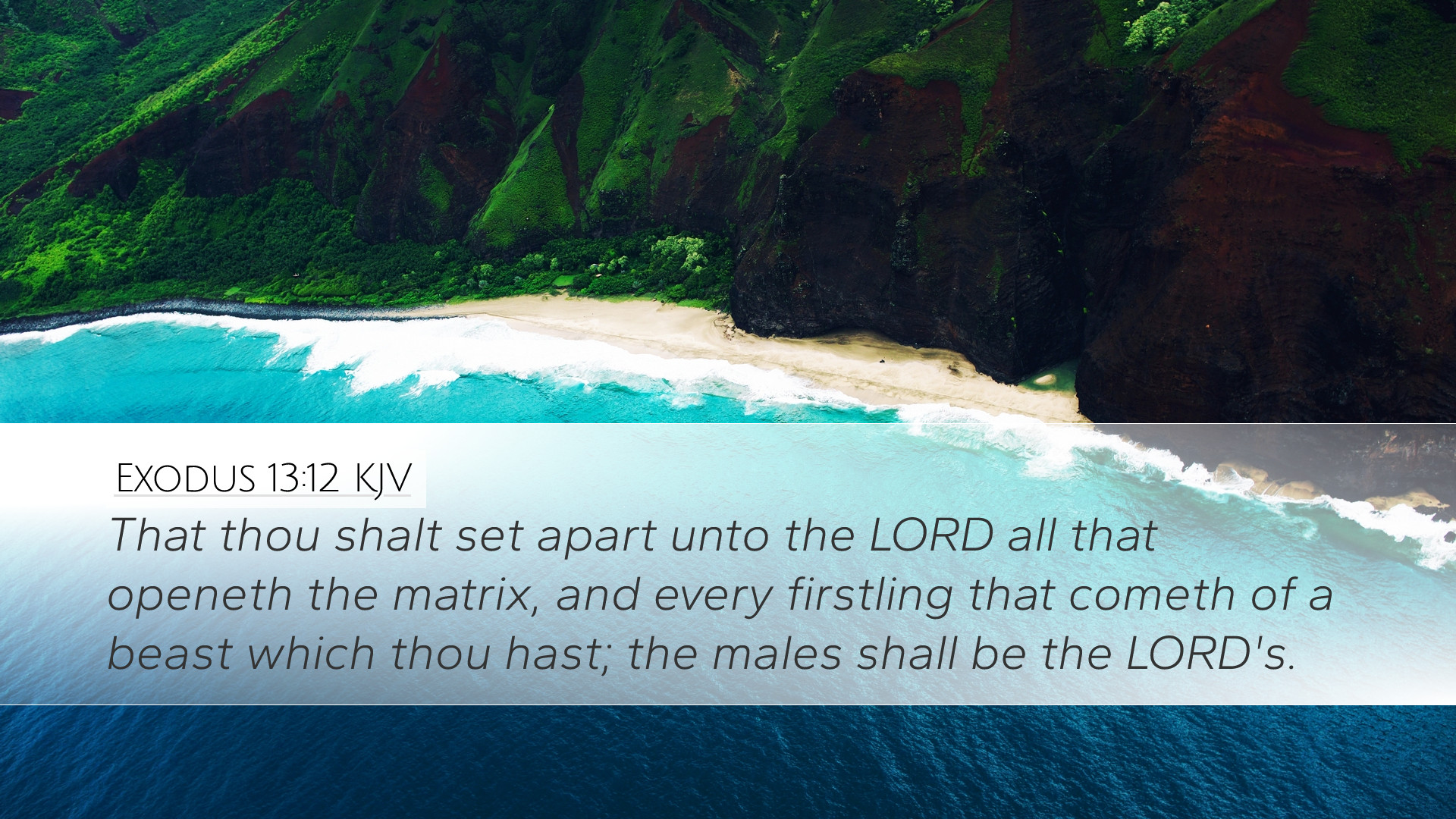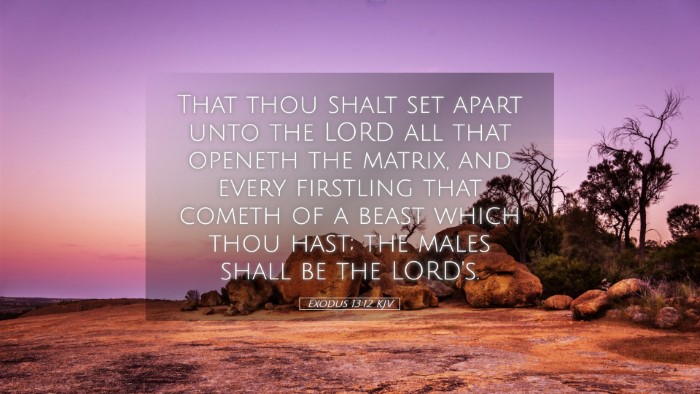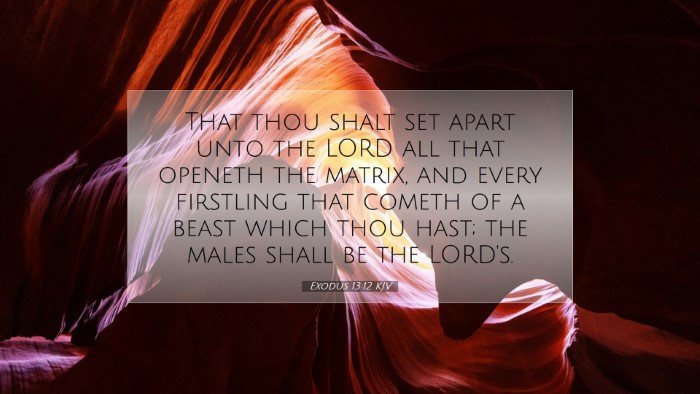Commentary on Exodus 13:12
Exodus 13:12 states: "You shall set apart to the LORD all that opens the womb, that is, every firstborn that comes from an animal which you have; the males shall be the LORD's." This verse is part of a larger narrative that addresses the significance of the firstborn in Israelite tradition as well as their consecration to the Lord. Below are insights from several public domain commentaries.
Historical Context
Matthew Henry emphasizes the historical context of this command, noting that it is tied to the Israelite experience of the Exodus from Egypt. The firstborn were spared during the Passover, highlighting God's mercy and power. This event established a pattern for later generations to remember and honor God's intervention in their lives.
Theological Significance
Albert Barnes remarks on the theological implications of the firstborn being set apart for God. This practice exemplifies the broader theme of holiness and divine ownership in the relationship between God and His people. The firstborn, representing a new beginning and a blessing, is seen as a model for believers today as they dedicate their lives to God's service.
Understanding the Term "Firstborn"
Adam Clarke provides a deeper linguistic exploration of the term "firstborn." He clarifies that it does not only refer to the first male offspring but includes all that 'opens the womb.' This includes both human and animal offspring. Clarke notes that the term emphasizes the value and priority of the firstborn, indicating a special status bestowed by God.
Practical Applications
Many modern readers might wonder how this ancient command applies today. Pastoral wisdom suggests that while Christians are not bound by the ceremonial laws of the Old Testament, the principle of consecration remains fundamental. Here are some practical applications:
- Dedicating Time: Just as the firstborn were dedicated to the Lord, believers today are encouraged to dedicate their time and talents for His purposes.
- Recognizing God's Provisions: Acknowledging that all good gifts come from God encourages gratitude and stewardship in our lives.
- Symbolism of Firsts: The idea of giving God the first of what we have—be it our income or time—remains relevant as an act of faith and trust.
Conclusion
In summary, Exodus 13:12 serves as a reminder of the importance of recognizing God's sovereignty over our lives. It challenges believers to reflect on what they dedicate to God and understand the historical significance of consecrating the firstborn. Through the insights of Matthew Henry, Albert Barnes, and Adam Clarke, we are encouraged to honor God in every aspect of our lives.


